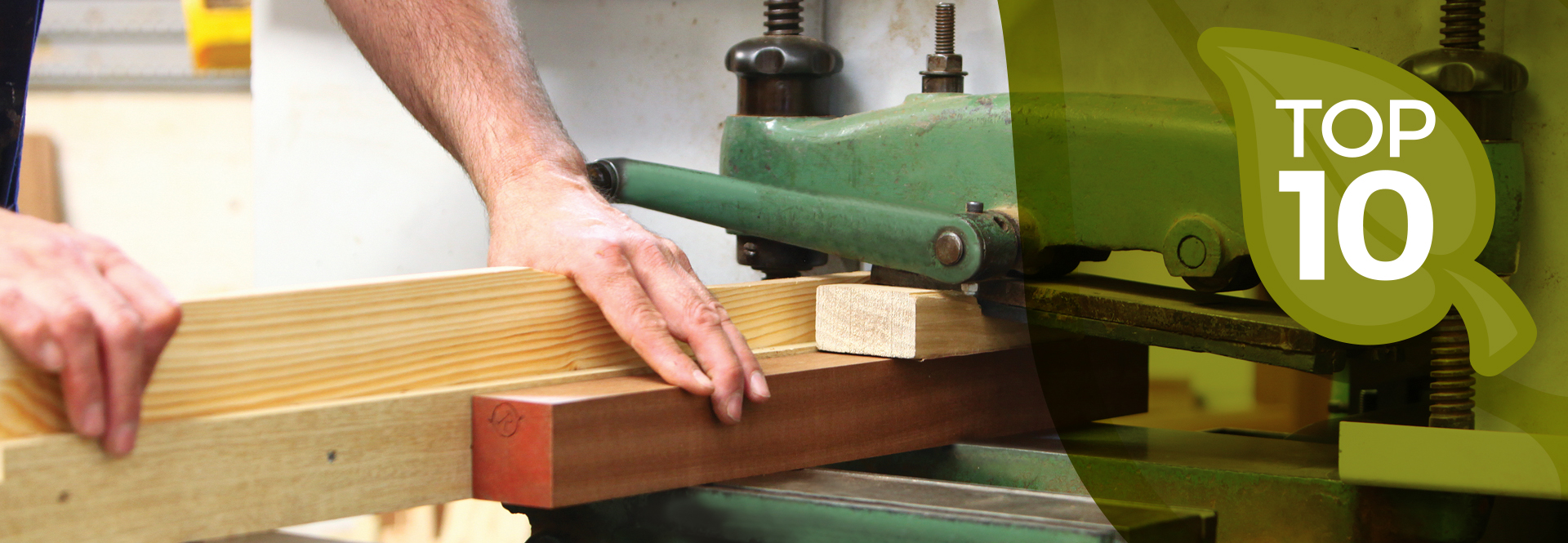“At the heart of every successful business is efficiency, and workshops are no different”
Taking care of the little things is what makes the difference between success and failure. That’s as true of joinery as it is life. What is the key to making sure you’ve got the little things in hand? Step one is having a comprehensive idea of what those ‘little things’ are – so we thought we’d help readers by providing one! So, if you want to make the most of your workshop, just follow these ten tried-and-tested pieces of advice:
1: Beware dust!
If your workshop is seeing regular use, then you will find wood dust and debris are a common occurrence. It’s easy to ignore these annoyances – but fight the urge! Some timber types can be toxic, and wood dust is a known health & safety hazard!
2: Use personal Protective Equipment (PPE)
If you’re using specialist tools and providing a specialist service, what should one of your first concerns be? Making sure you’re properly kitted-out for the job! Common accessories like gloves, facemasks and maybe even a hardhat or two, can save the day.
3: Keep it clean and tidy
We’re not all naturally tidy people – and that’s fine. But in a workshop, there are major benefits to keeping things neat. Don’t let your plethora of tools and projects get jumbled up with one another – use racks, shelves, and more to keep yourself clean, tidy, and – most importantly – organised!
4: Turn up the lights!
Guess who makes better stuff, the carpenter who can see what he’s doing, or the carpenter who can kind-of see what he’s doing? It’s a no-brainer: make sure you have adequate sources of illumination if you want to do the best work.
5: Use a floor that’s gentle on the feet
Concrete is great, assuming you don’t have to stand on it for eight hours a day. What’s good for heavy machinery isn’t necessarily good for the people using it. Try safety boots with cushioned soles, laying a separate wooden floor atop the concrete, or even applying anti-fatigue matting to the busiest areas of the workshop.
6: Keep sharp stuff sharp
It should go without saying that sharp things should stay sharp. Whether you use a machine sharpening system or something more traditional, like a whetstone, don’t skimp when it comes to keeping sharp things sharp.
7: Don’t run out of consumables
How’s your stock looking? If you don’t have the right kind of timber, or your last saw blade breaks, then you could let your customer down with a late delivery. It’s an easy thing to get right – and getting it wrong can really knock a reputation.
8: Machinery maintenance
Complex machinery needs regular attention to make sure it’s still fit for purpose. When you consider the costs of a crucial piece of equipment giving up half way through the job, taking the time to clean out sawdust and apply a little lubricating oil might seem like less of a burden.
9: Take benches seriously
If it’s a workshop, it’s got benches. You’ll need to make sure you have the ones you need: heavy duty, with all the right attachments.
10: Keep things mobile
There’s a huge benefit to making things mobile, whether that’s benches, large pieces of equipment, or… well, anything else in a workshop. Because workshops involve lots of repositioning, you should think about making that repositioning as easy as possible.
So there you have it, ten simple things you can do without too much time, money or effort, that might make a big difference to how your workshop works. And when it comes to stock… well, we can help you with that too. Just drop us a message via our contact form [hyperlink] to make an enquiry.

